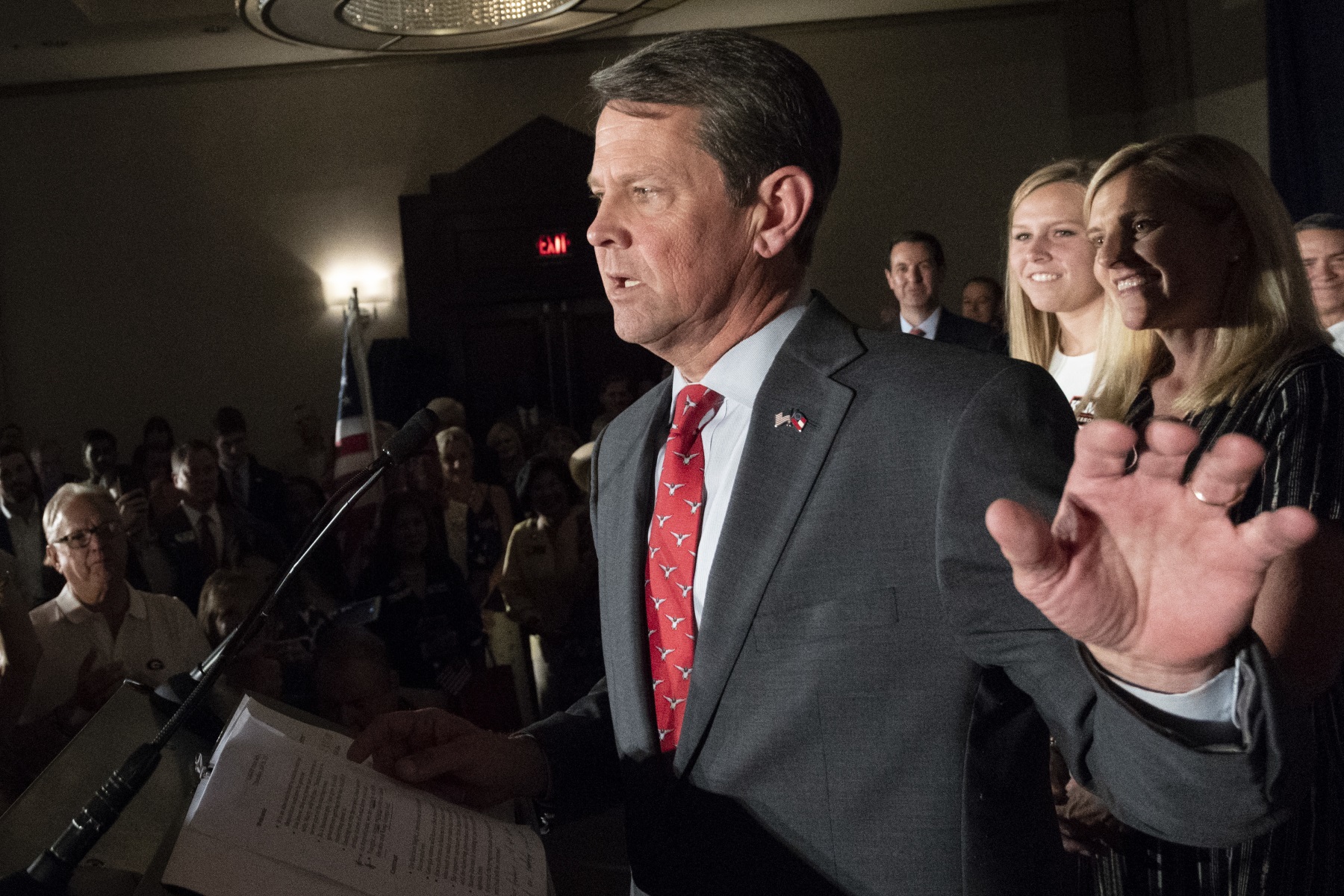Brian Kemp’s election as governor likely means that full-fledged Medicaid expansion will remain off the table in Georgia, at least for a while.
Republican Kemp, who will take office in January, opposed Medicaid expansion during the campaign, while Democratic candidate Stacey Abrams strongly supported it. Gov. Nathan Deal and his fellow Republicans who control the Georgia General Assembly have resisted expansion since it became an option for states several years ago.
But there may be other health care ideas coming under a Kemp administration that can bring coverage to more Georgians. And those ideas come under the general heading of “waivers.’’
Medicaid expansion has been adopted by 36 states, according to the Kaiser Family Foundation. It has not been pursued in Georgia, with elected leaders contending it would be too costly. Still, polls indicate the idea is popular among people in the state.
A Kemp administration, meanwhile, could pursue one or more waivers that fall short of full expansion. States can propose waivers to change their health care programs under the Affordable Care Act. Such changes must receive federal approval.
The waiver plan getting renewed attention since the election was developed by Atlanta-based Grady Health System three years ago.
The Grady plan would use federal matching Medicaid dollars to help set up pilot sites that would provide coverage to thousands of people who currently lack medical insurance.
Participating medical providers would then manage these patients’ care.
The program would be kicked off through a “1115 waiver,” an experimental plan that the feds approve to give states flexibility to improve their Medicaid programs by using a new approach.
The Deal administration did not pursue the Grady idea. But Kemp’s move to add Tom Price, a former U.S. secretary of Health and Human Services, to the gubernatorial transition team could pave the way for such a waiver plan, says Kyle Wingfield of the Georgia Public Policy Foundation.
The Price addition may mean ‘’the Kemp team understands they need to do something on health care,’’ Wingfield said Monday. “We would say that bringing in someone like Tom Price indicates that they get that and they’re looking for someone who’s very familiar with how HHS works.’’
Price, a Georgia physician who spent years in the state Legislature and then the U.S. House, served as the Trump administration’s health secretary before resigning last year amid criticism of his use of charter flights for some taxpayer-funded travel. He has long been a nationally known voice on health care policy.
Wingfield said a waiver would give Georgia the flexibility to design a pilot program as Grady envisions and see how it works. The goal would be “to find a better way to spend the money’’ from the feds, he said.
Republicans can’t just sit and do nothing on health care, Wingfield said, or else they open themselves up to ideas such as “single payer’’ or a “public option,’’ which would extend the federal role in health care.
Georgia’s health care challenges include its uninsured rate, one of the highest in the nation; its low ratings among states on different public health measures; and the continuing financial struggles of rural hospitals.
Another waiver idea being discussed pertains to the state’s health insurance exchange and “reinsurance.’’ A reinsurance program aims to stabilize health insurance premiums in the exchange by capping the cost that insurers incur in covering people with high medical costs.
Bill Custer, a health insurance expert at Georgia State University, said Kemp’s appointment of Price gives the Grady proposal more momentum. Price commended the Grady idea at a recent conference.
Custer, though, also pointed out that a state can get close to a Medicaid expansion effect by using another type of waiver — basically a variation of the main expansion idea. Options would include a work requirement for the newly covered people, or charging premiums for higher-income beneficiaries.
“There’s a pretty good appetite to expand Medicaid’’ to some degree, Custer said. “You could do significant coverage expansion’’ through such a waiver.
Kemp has also said he supports raising the amount of tax credits in the rural hospital donation program from $60 million to $100 million. Rural hospital donations have soared this year after the Legislature decided to raise the tax credit to 100 percent of donations, up from 90 percent. (Here’s a recent GHN article on the program.)
Kemp’s plan also calls for an expanded medical school loan forgiveness program to increase the number of OB-GYN and primary care doctors in rural parts of the state, the Atlanta Journal-Constitution reported.
Laura Harker of the Georgia Budget and Policy Institute, which supports Medicaid expansion, said she thinks the Kemp administration will create a commission to study behavioral health and potentially pursue federal waivers related to the health insurance exchange, along with raising the rural tax credit amount.
“The rural hospital tax credit has helped some rural hospitals, but the amount hospitals receive varies greatly and it doesn’t bring them more insured patients,’’ Harker said Monday. “Putting an insurance card in more Georgians’ pockets and drawing down $3 billion in federal dollars is a better way to bring more money to financially struggling rural hospitals,’’ she said, referring to standard Medicaid expansion.
Andy Miller is editor and CEO of Georgia Health News







